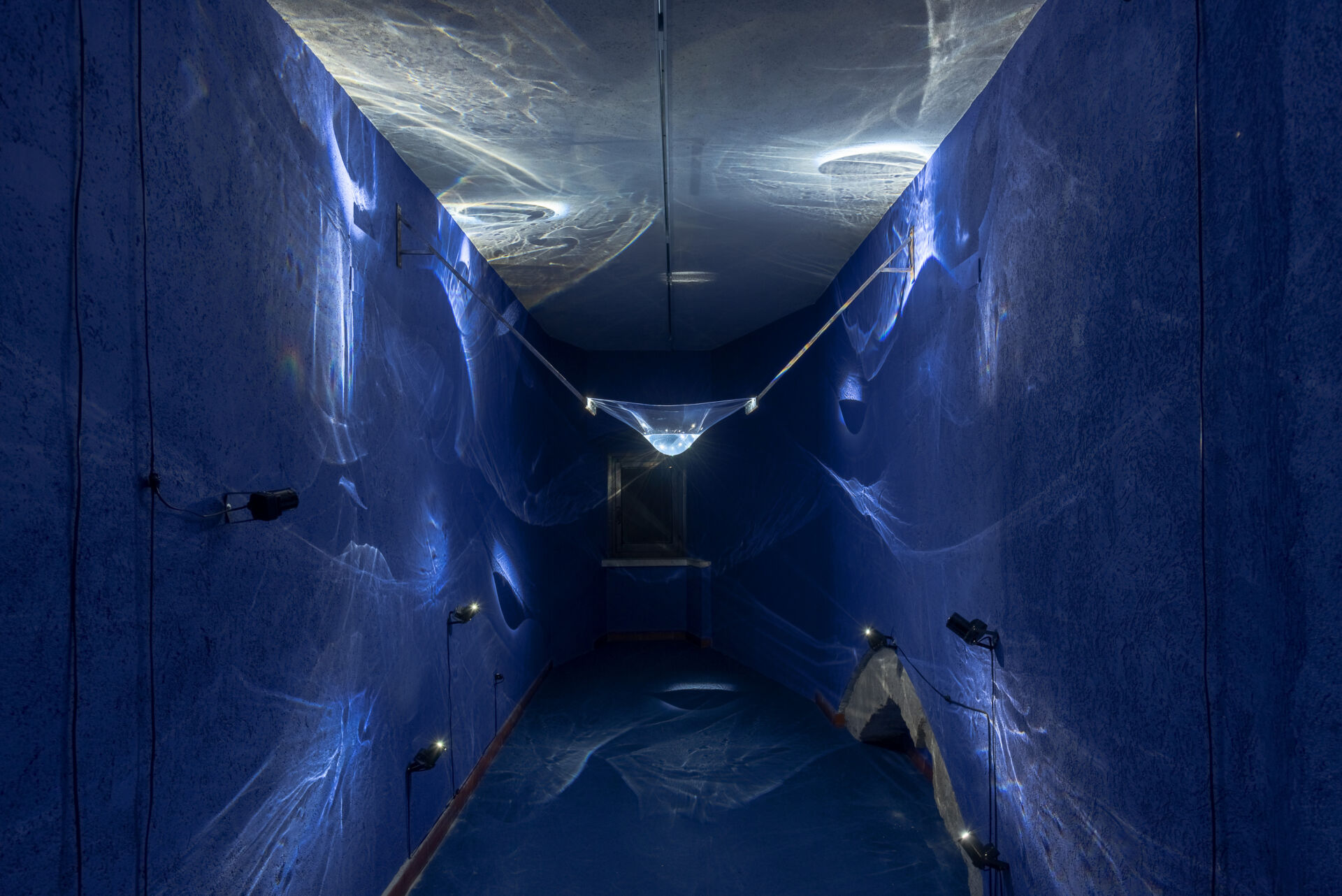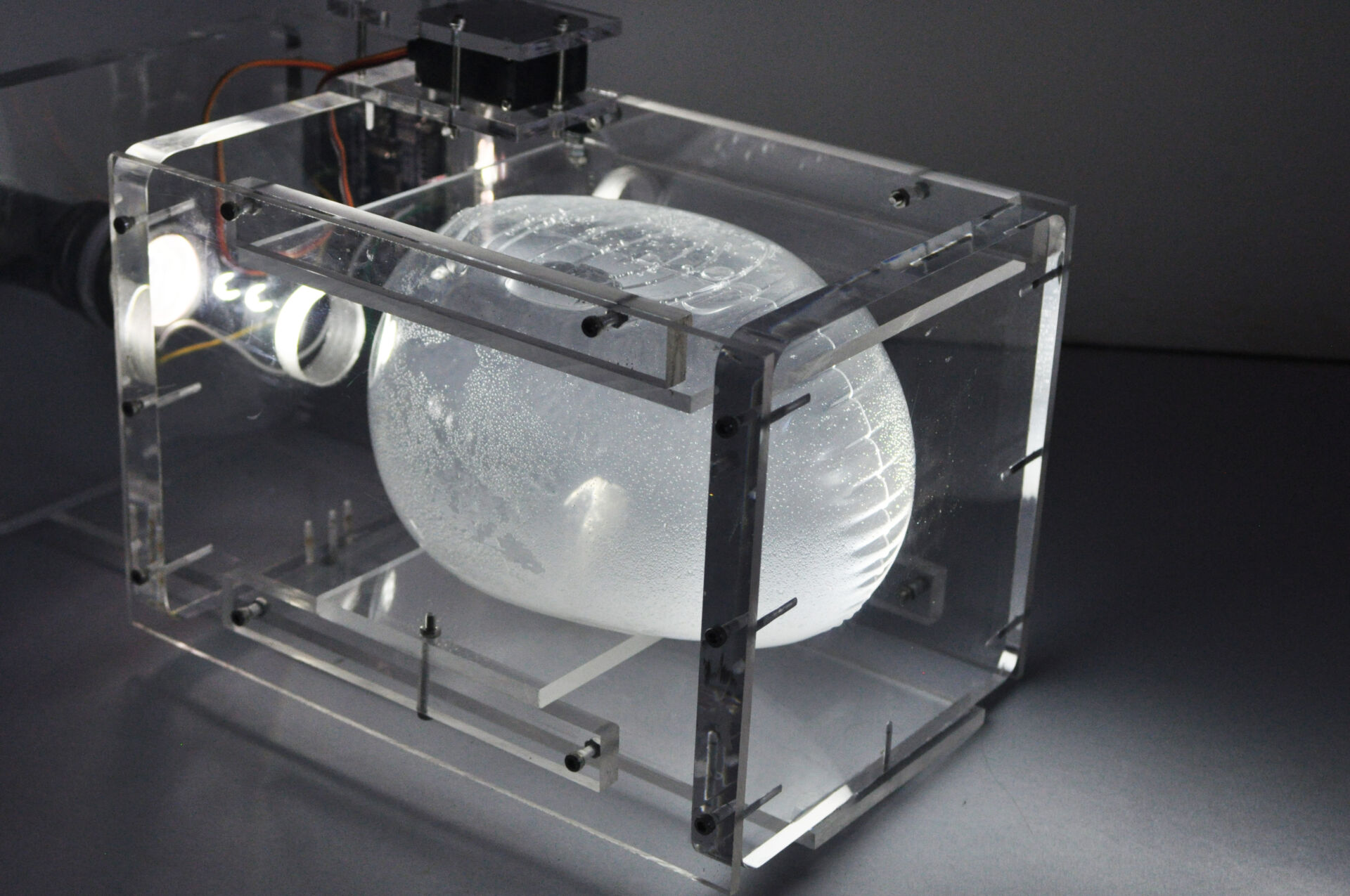Mozzarella Light is the artistic duo composed of Giulia Ciappi (Poggibonsi, 1997) and MarcoFrassinelli (Rome, 1992). They trained at the Academies of Fine Arts in Florence and Rome, where they graduated in Sculpture, and at the Universidad del Pa – s Vasco in Bilbao, Spain, doing workshops and residencies in the USA, Greece and Israel. The name they chose to designate their artistic partnership focuses on disorientation and an apparent anti-artisticity. Their research is based on curiosity in the experimentation of materials, the ductility of their interventions, and a profound and circumstantial reflection on space and its possibilities of transformation. Their most recent exhibitions include: Onironautico, Contemporary Cluster, Rome (2024); Puramente immaginabile, Supernova, Rome (2023); Cassandra, Spazio Volta,Bergamo (2023); SUB, progetto squatting, Ciao, Rome (2023); Margine dentato, SpazioArtiglieria, Florence (2022); Domovoi, Casa Vuota, Rome (2022).

Technology is a consistant element that permeates our creative process: a personal remedy for constant technological exposure. In our daily life, it also provides the possibility of observing reality through technological devices that are transformed into poetic means. This interaction becomes the matrix for an evolving process often in opposition with the previous operation. An emblematic aspect of our work is our attempt to make dysfunctional sculptures kinetic, transforming them into technological and acoustic presences that require the proximity of human beings, and not vice versa, as in Margine Dentato (2022) for BOCCADAFUOCO curated by Nicola Rossini, hosted and produced by ARTiglieria.
Gradually, the paradigm is reversed with camouflaged works, made visible only through light and reflections, revealing hidden technology that retrieves intangible projections. In both cases, we are confronted by languages that describe daily behaviour, wavering between presumed control of technology, and the incapacity to fully understand the cause and effect relationship between the action of the machine and the image it produces. This presence/absence, visibility/invisibility, is the metaphor of our present technological experience.
Gentile comes from the Latin, Gentilis: belonging to a gens. For us, Gentilezza, or courtesy, is understood as an act of respect, a dialogue between equals; a modus operandi that is fundamental in our exploration. Occupying a space with courtesy represents a deep respect for the place and its history; we consider it essential to create a dialogue between the space and our project.
In the Squatting project, the artistic installation consists of a transformative/temporary agent, able to interact with the environment, but without altering the original essence or function. The SUB installation, created for and with Panopticon Publishing in the CIAO grocery store, totally respects this approach: it integrates with the everyday life of the space, enhancing its experiential dimension and creating a fluid interaction between the project and the occupied space.

In our creative process, any errors are considered as catalysers to inspire new possibilities, changing from a restraint to a resource. Error embodies the desire to challenge the unknown, to embrace the intrinsic uncertainty present in every technological mechanism. For us, technology is a poetic means that allows us to translate mental images into tangible reality. Since technology is intrinsically – mechanical – , it is inevitable that during the research and creative process we encounter errors that help us develop greater sensitivity towards technological matter, no longer considering it as a controllable entity, but as an active communicator and collaborator. This is why we deliberately decided not to rely exclusively on technicians.
We are very happy to be taking part in the – City of Light residency – in Jyv – skyl – , Finland. What attracts us most in these residencies, and in this case, – City of Light – , is discovering the local territory, materials, and above all, the natural light of the region where we are hosted. This experience represents an opportunity to explore the field of – Analog Technology – , which, for us, acts as a spontaneous necessity which is part of our work; a conjunction of apparently opposing duality which coexists in symbiosis. Thanks to the support of specialised technicians working with us during the residency, we will be able to increase our knowledge and understanding of the subject, while maintaining error as a fundamental element. –